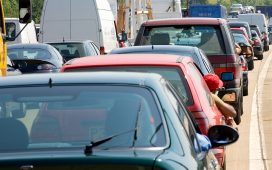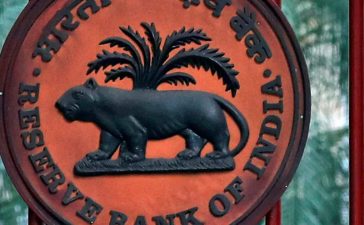THE Campaign for Better Transport is urging the Chancellor to make electric car drivers pay to use the roads to avoid a looming ‘black hole’ in fuel duty receipts.
Most agree that EV drivers should pay their way – but there’s a darker side to this that makes me worry
With around only 1 million EVs in the UK, compared to 40 million combustion vehicles, the current loss to the Treasury is actually tiny.
Blaming EVs for falling fuel duty revenues is wrong.
Vehicle Excise Duty (road tax) raises £7 billion a year and fuel duty another £25 billion.
But fuel sales have been steadily falling.
In 2002 the average UK annual mileage was 9,200, now it’s 7,400.
When EV adoption does go mainstream – a slow process with new EV sales faltering – Treasury coffers will certainly take a hit.
But until then, that ‘black hole’ is many years away.
Calling for pay-per-mile legislation now – and blaming EVs to help gain public support -could be a way to slip pay-per-mile road charging through the back door.
Once it’s tested with EVs – and becomes less contentious – the government could roll it out to all vehicles.
But making the technology work would be a monster challenge.
Some suggest capturing mileage from MoTs, but that could leave drivers facing a huge annual bill.
Lining every road with ANPR cameras would cost more than the scheme would generate.
And you’d need to enforce every road, or drivers will just use the ones that aren’t, shifting congestion elsewhere.
GPS or satellite data using modern in-car technology would be the cheapest solution, but what about your gran’s 1984 Fiesta?
Libertarians will complain about privacy, but smartphones, sat navs and in-built car tech already know where we are.
Fairness would be another major issue.
Pensioners, carers, shift workers and those in rural communities would need to be given concessions.
But the biggest obstacle has always been public acceptance.
To gain solid support you’d need to scrap fuel duty and VED completely so that those who use the roads the least, pay less than they do now.
Pledging that some of the revenue raised would be ring-fenced for road repairs and maintenance might also bolster acceptance.
A Go Compare survey this year showed that 53% of UK drivers don’t want pay-per-mile with only 26% in favour.
The top reason against this was that drivers think it will be used to increase taxation by stealth.
This mustn’t be seen as a way to raise more tax revenue or – worse – to force us out of our cars and onto public transport that’s both unreliable and expensive. That way political disaster lies.
Making fuel retailers pass on falls in the oil price quickly and transparently to drivers should be one of this Government’s main road fuel priorities.
And for it to really reduce congestion and pollution – two of its primary functions – costs must be based around the time of day travelled, type of road driven and emissions based, so the biggest polluters pay the most.
Labour haven’t committed to any pay-per-mile scheme yet and, unless they want their already waning popularity to worsen, I reckon they’re unlikely to do so in this Parliament.
What they are likely to do is scrap Sunak’s 5p Covid fuel duty cut that has so far cost £2 billion and raise duty for the first time since 2011.
Global oil prices are falling and we’re now paying the same for petrol and diesel as we did back in 2012.
Making fuel retailers pass on falls in the oil price quickly and transparently to drivers should be one of this Government’s main road fuel priorities.
Cutting fuel duty by 5p which was then trousered by forecourt owners and not passed on to consumers was a waste of precious tax-payer cash.
What is pay-per-mile and what does it mean for me?
By Jacob Jaffa
Pay-per-mile is a proposed system of road tax based on annual mileage rather than emissions ratings.
At the moment, vehicles that produce the most pollutants are taxed the highest as the Government seeks to incentivise transitioning to cleaner transport.
However, as EV adoption steadily increases, The Treasury is predicting a significant shortfall in tax receipts.
EVs are exempt from road tax until 2025 and even then will only be placed in the lowest £20 bracket (with those worth over £40,000 also paying a luxury vehicle supplement).
One study by the RAC estimates that the Exchequer could miss out on up to £9.4 billion in tax by 2031 as a result.
With ministers scrambling to fill a £22 billion “black hole” in the books, some industry figures have proposed pay-per-mile as a potential alternative.
How does pay-per-mile work?
As the name suggests, a pay-per-mile system means that drivers pay tax based on how much they use the roads.
Your mileage is already recorded by the DVLA annually at your MOT, while there has also been suggestions that road usage could be monitored by ANPR cameras.
Under a pay-per-mile model there will be a set price of a few pence for each mile travelled.
Supporters claim that this is a fairer way to spread the burden of costs for things like road maintenance, with those who use the roads most contributing more.
But critics suggest it removes the incentive to adopt greener vehicles and have also raised concerns about personal freedom and the incentives against car use.
Does anywhere else use pay-per-mile?
While not widely used around the world, there are a number of countries who have implemented some form of pay-per-mile system.
They include New Zealand, Germany, Switzerland, Austria, Russia and the Czech Republic.
This is usually operated on the basis of tax rebates for falling under a pre-set mileage allowance, which is slightly different from the version being proposed here.
What does pay-per-mile mean for me?
That largely depends on the price that is set if pay-per-mile is approved.
One report proposing the change suggested a rate of 2p per mile, which would mean an average annual bill of around £130.
This would mean that drivers in all but the three lowest bands currently would pay less than they do at the moment but would mean an increase for owners of low-emission vehicles.
However, the higher the price is set, the more likely it is that people will pay more than under the current system.
Likewise, those who drive regularly for work or travel would likely pay a fair chunk more, while those who barely use their car would be asked to contribute very little even if it was a diesel-guzzling SUV.
But most experts – including the RAC and AA – agree that road charging in some form will be inevitable.
But the problem ministers face is it’s an incredibly complex political hand grenade with the potential to even bring down a government.
Messaging the concept in a way that sounds fair, technologically reliable, cost-effective and doesn’t penalise those on lower incomes, with additional needs or living in isolated communities, will be a daunting political and communications challenge.
Unless Labour wants to commit political suicide, I’d be enormously surprised to see pay-per-mile coming any time soon.











